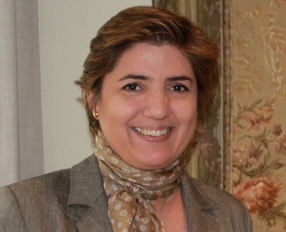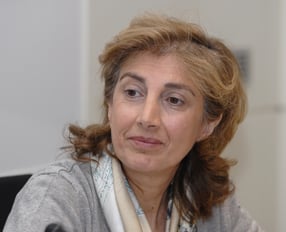
Jumana Trad and Macarena Cotelo, President and Project Director of the FPSC respectively, took part on two programs of the Spanish radio station, where they talked about the Vatican’s recognition of a Palestinian State and about the situation of Christians in Iraq.
Macarena Cotelo: “La Mañana fin de semana” program, conducted by Fernando de Haro. Min. 51:45. (Spanish)
http://www.cope.es/player/La-Manana-Fin-de-Semana-de-6-a-830-sabado-16-de-mayo-de-2015&id=2015051609200001&activo=10
Some highlights from the interview:
The Vatican’s recent recognition of a Palestinian state is one more stage in a process that started in February 2000, before the Pope John Paul II arrived in Holy Land. It was a milestone because the aim was to guarantee the situation of Christians in Palestine. Afterwards, the arrival of the Pope became a great ethical shot for all the Christians living in Holy Land.
We are undergoing another stage, which is in line with the decision-making of other States, such as Spain. Last November, a request for recognizing the Palestinian state was endorsed almost unanimously by the Spanish congress.
We are living a historic moment, but even though, we have to keep our feet on the ground, as this is only a diplomatic step. For Christian Palestinian people this is great news, because this recognition means a moment of hope framed in a process that started 15 years ago and that is still moving forward.
Christians in Palestine live a harsh situation; they are a minority decreasing everyday in this country, with less representation, and it is specially complicated when this minority, associated to a specific religious confession, is placed in one area of the world where religion is the number-one factor.
That is why this recognition is so important, because the future Palestinian state assume their responsibility on guaranteeing the rights of this people.
There is one reference in the region that worked well: Lebanon. But it seems difficult to copy, because in this case, the amount of Christians living there is much higher.
Jumana Trad: “El Espejo” program, conducted by José Luis Restán. Min.11:40 (Spanish)
http://www.cope.es/player/El-Espejo-del-20-de-mayo-de–2015&id=2015052017090001&activo=10
Some highlights from the interview:
Lebanese Christians watch the Middle East situation with deep concern, as they see the catastrophic situation their neighbors Syria and Iraq are undergoing. In this context, last Sunday two Christian Arabic nuns were beatified, and Christians in my country were very pleased about that. The father of one of them, a Carmelite called Maria, was Lebanese, and Christians in Lebanon saw him as a symbol of hope.
Christian communities in the Middle East are very close, except for the hierarchies. Civil society does not make any difference between Orthodox, Assyrian or Chaldean Christians, this way an ecumenical movement can be observed among them.
ISIS is very difficult to combat, because they are prepared to die. They are a new phenomenon, and they spread terror, as when they executed 500 people in Ramadi only one day after invading it. Under this sacrifice and self-immolation premise, they raise as some kind of gods. It is very disturbing.
Europe should quietly reconsider their reception policies. This one in the Middle East (Syria and Iraq) is the worst humanitarian crisis since the World War II. Tons of people have faced terrible situations; for example leaving their towns and houses or losing members of their families.

